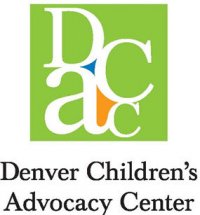By Gizane Indart
Executive Director
For many children, summer is the time to enjoy long, lazy days. Summer is freedom from school and homework. Summer is family vacations. Summer is fun and laughter. Summer is swimming pools, hot dogs, ice cream, and watermelon. Summer is play.
For other children—too many children—summer is no different than the rest of the year. Actually, summer is much, much worse. School provides protection for children at high- risk for abuse, and healthy stimulation for kids who are neglected at home.
Children whose parents neglect them often spend their summers in isolation. They can become bored and lethargic, or in search of any kind of stimulation they may join forces with other neglected kids and engage in dangerous and destructive behavior.
Child victims of sexual abuse have no protection during the summer. They are at the mercy of their abusers who know that no one will come to check on why the child isn’t in school.
Studies indicate that while the rate of abuse is consistent year-round—abuse never takes a vacation—the rate of reporting drops during the summer because children have no access to teachers and other professionals with a legal duty to report their suspicions.
Every day at DCAC, we work tirelessly in outreach, prevention, education and interventions so that our efforts remain constant, irrespective of the season.
This summer, please don’t make a suffering child wait until September. If you suspect that a child in your neighborhood is being abused or neglected, please take action so that the child can receive help immediately and begin to heal.
All you have to do is call the Denver Crisis Hotline at 720-944-3000. All calls are confidential. Please don’t hesitate—a child’s life may depend upon it.
Common signs of child abuse:
- Has unexplained burns, bites, bruises, broken bones or black eyes
- Seems frightened of parents and protests or cries when it is time to go home
- Shrinks at the approach of adults
- Has poor relationship with other children
- Verbally abuses other children
- Exhibits irrational fears
- Is hyper vigilant
- Daydreams excessively
- Has eating problems
- Exhibits extremely low self-esteem
- Constantly over-active
Common signs of child neglect:
- Is dirty or has severe body odor
- Lacks needed medical or dental care
- Lacks sufficient clothing for weather
- Delays in speech
- Is excessively shy or demanding of attention
- Begs or steals food or money
- States there is no one at home to provide care
- Is easily distracted and seems nervous

